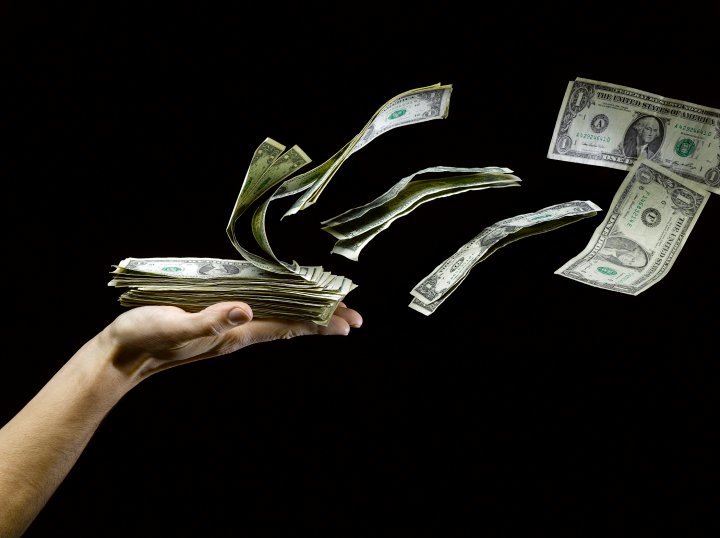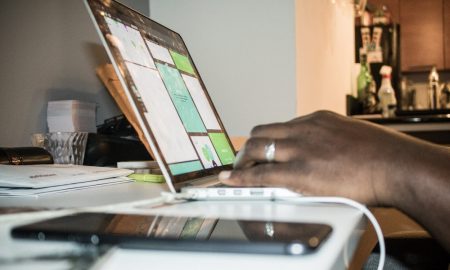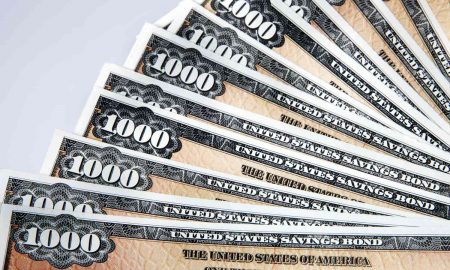
2017 Bank Survey Reveals Most Americans Have Less Than $1000 In Savings

America is the land of the free and economic opportunity. Unfortunately, this freedom and opportunity have had some not so good effects on the spending habits of its occupants as surveys reveal that more and more people are getting broke. With statistics getting more alarming, you can be just amongst any of these people.
Less Than $1000 in the Bank
According to a recent survey, 57 percent of all Americans have less than $1,000 in savings. While this marks a significant improvement from last year’s 69 percent, this is not really something to rejoice about. More Americans have no savings at all as such percentage has gone up from 34 percent to 39 percent.
The survey shows that 39 percent had no savings at all, 18 percent had less than $1,000 saved, 12 percent had saved from somewhere in between $1,000 to $4,999, 6 percent had $5,000 to $9,999 in savings while a decent 25 percent had saved $10,000 or more.
America’s Poor Savings Habits
In last year’s survey, it was shown that lower-income adults struggle harder in saving money as compared to middle and upper-income adults who did fairly well. Around 29 percent of adults who earn more than $150,000 per year and around 44 percent of those who make between $100,000 and $149,999 had less than $1,000 in savings. In contrast, 73 percent of the lowest income adults had less than $1,000 in their savings account.
The survey also found that there was not really much difference between generations of American when it comes to saving habits. Senior citizens and young adults both had saving habits which were just as poor as each other.

The average American should have at least six months worth of expenses saved.
Where These Poor Saving Habits Come From

Isla Fisher is a compulsive shopper in “Confessions Of A Shopaholic”
This data is particularly worrisome since experts recommend that the average American should have at least six months worth of expenses saved to make room for emergencies such as car and house repairs and medical emergencies. Without such an emergency fund, millions of Americans are at a grave risk of a financial disaster.
Two main factors are to blame for American’s poor saving habits. The first is living beyond their means as 70 percent of US GDP has been tied to consumption. The other is the environmental factor with our society revolving around entertainment and other things which make us happy, which is not actually too surprising.
How Much You Should Really Save
While the amount you need to save is mostly personal and catered towards your lifestyle, you should be aware that your budget can be arbitrary. Fortunately, there is a formula which can help you figure out if you are saving enough money.
If you are still in your 20s, you should go for 25 percent of all your overall gross pay. When you reach thirty, you should already have the equivalent of your annual salary saved, and double this amount when you reach 35, triple when you reach 40, quadruple when you reach 45 and so on. If you follow this formula, you can have eight times your annual salary by the time you reach 65. While this can sound pretty intimidating today, it is not actually that difficult if you start working on it while you are still in your 20s.
Other Budgeting Tips
The key to saving money is sticking to a budget, but this can be harder for those who did not develop a saving habit early on. One can use online budgeting tools which have proven to be effective for a lot of people. You no longer have to formulate a budget by hand an instinct since these online budgeting tools already have all you need and a lot of them are even free.
Another tip would be for you to analyze your budget regularly. While you might prefer to analyze to assess your spending habits once in a while, just setting aside 15 to 30 minutes once a month can do wonders for making yourself aware of your progress.
It will not take you forever to learn how to save. There are a lot of infinite resources and materials to teach you how to cultivate this habit regardless of what your age and financial position are. With more and more Americans having no savings and with the costs of goods on a constant rise, do not let yourself fall victim to these usual but unhealthy habits. What do you think of this saving endemic? What steps do you plan to take to get out of it, if you happen to be there? Share with us your thoughts and reflections in the comments below.
More in Bank Stories
-
Turn Your Rental Space Into Your Home With These Effective Tips
Get to Know Your Boundaries Before you start planning your mini-makeover, it is crucial to understand the limitations set by your...
December 14, 2023 -
Brewing Controversy: Unraveling the Bud Light Boycott
In a world fueled by opinions, the recent Bud Light boycott has stirred quite the commotion. It’s not your typical tale...
December 7, 2023 -
How LVMH Became a $500 Billion Luxury Empire
LVMH Moët Hennessy Louis Vuitton is a name synonymous with luxury and opulence. The brand has crafted not just products but...
December 2, 2023 -
Women Spend 20% More Per Year on Out-of-Pocket Health Costs
A recent report from Deloitte has brought to light a concerning issue in the world of healthcare – women spend a...
November 24, 2023 -
How Sound Baths Can Soothe Your Mind, Body and Soul
Have you ever been so caught up in a song that you felt the world melt away? Music, in its many...
November 18, 2023 -
What to Know Before Rebalancing Your Investment Portfolio
Managing an investment portfolio is akin to steering a ship through ever-changing waters. Periodic adjustments are necessary to ensure you stay...
November 11, 2023 -
Jeff Bezos and Fiancée Lauren Sánchez’s Extravagant $500 Million Superyacht
Get ready to set sail on a journey into the opulent world of Amazon founder Jeff Bezos and his fiancée Lauren...
October 31, 2023 -
How to File Your Taxes: A Comprehensive Guide
Filing your taxes can be daunting, but with the right knowledge and preparation, it doesn’t have to be overwhelming. Taxes are...
October 26, 2023 -
Make Your Kids Mini Master Chefs | Here’s How
For many of us, the kitchen is the heart of our homes – a place where magic happens, one dish at...
October 19, 2023















You must be logged in to post a comment Login